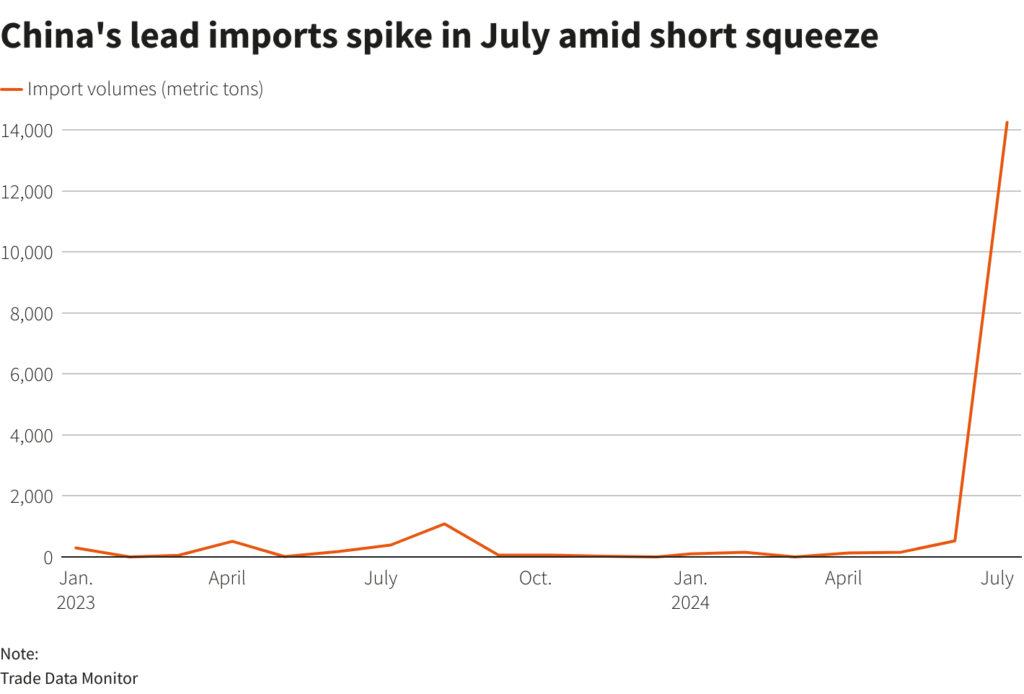Lead sellers caught short by Shanghai delivery rule change

Would-be sellers of battery metal lead on the Shanghai Futures Exchange (ShFE) have been forced to search for overseas supplies or roll forward contracts they hoped to close following a change in specifications, four sources familiar with the matter said.
ShFE declined to comment.
While the global lead market is well supplied, Shanghai’s stocks have been tightened after the ShFE in April lowered the content of bismuth in lead that can be delivered against its contracts in response to stricter emission standards for Chinese battery makers.
As traders struggled to find material to meet the new requirements, China in July became a net importer after years of being a net exporter and lead prices on ShFE reached a six-year high of 20,050 yuan a metric ton SPBc1 on July 18.
They have since eased to 17,434 yuan.
Lead trading activity also surged, reaching all-time highs of 126,959 lots, or 288,550 metric tons, on Aug. 16.

The short sellers caught in the frenzy were either producers hedging or traders risking bets the market would fall.
As they found themselves forced to deliver against their positions, or pay to roll them forward to buy time, some turned to the London Metal Exchange (LME) for lead, where prices are lower, having risen only 0.5% this year, compared with the 23.9% rally on ShFE.
Lead stocks in LME-approved warehouses at 185,500 tons have declined by 20% or 46,100 tons since start of August.
At the same time, lead stocks in warehouses monitored by the ShFE more than doubled to 57,710 tons last week.
It fell by 50,611 tons, or 87.7%, to 7,099 tons, exchange data on Friday showed.
One of the trade sources, speaking on condition of anonymity because they were not authorised to speak to the press, said that was still not enough for the shorts.
They did not say how long the situation could last or give full details on its extent, but they said finding the right lead was difficult and there was confusion over what the right lead was.
Since May, the ShFE has rejected multiple deliveries that do not comply with the latest standards on ShFE-deliverable lead that say it must have a bismuth content of 25 parts per million (PPM) or less, compared to 40 PPM previously.
Commonly found in zinc, lead, silver ores, bismuth could cause kidney failure in humans.
(By Julian Luk and Pratima Desai; Editing by Barbara Lewis)
{{ commodity.name }}
{{ post.title }}
{{ post.date }}




Comments